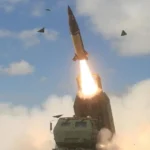President of Turkey Recep Tayyip Erdogan intends to present his own plan for a peaceful resolution of the war between Russia and Ukraine during the G20 summit, which will take place on November 18-19 in Rio de Janeiro. The Turkish leader hopes to offer a compromise that, in his opinion, could stabilize the situation in the region, Bloomberg reports.
Key points of the “peace plan”
- Freezing of the conflict on the front lines.
Erdogan suggests halting hostilities by fixing the current location of troops on the front line. This step would prevent further losses and create conditions for negotiations. - Postponement of Ukraine’s NATO membership.
Turkey plans to propose postponing this issue for at least 10 years. As compensation, Ukraine is promised military support from the West. - Demilitarized zone in Donbas.
To ensure security in the region, Erdogan proposes creating a neutral territory where international peacekeeping forces will be stationed. - Focus on ceasefire.
Turkish officials believe that delaying discussions on the status of occupied territories will allow focusing on the primary goal – a stable ceasefire.
Ankara’s Reaction
According to Bloomberg, Turkey is trying to convince Ukraine of the importance of this plan. Turkish intelligence warns that if hostilities continue, Ukraine may lose even more territory. Therefore, Erdogan hopes to involve Ukrainian President Volodymyr Zelensky in negotiations in Istanbul.
Kremlin’s Position
The Russian authorities have been skeptical of Turkey’s initiative. The press secretary of the President of Russia, Dmitry Peskov, stated that the freezing of the conflict along the current front lines is “a priori unacceptable” for Moscow.
The Kremlin reminds of its conditions for ending the war, voiced by President Vladimir Putin in June:
- Withdrawal of Ukrainian troops from the territories of Donetsk, Luhansk, Zaporizhzhia, and Kherson regions.
- Ukraine’s abandonment of aspirations for NATO membership.
Political Risks and Perspectives
Erdogan’s proposal appears to be an attempt to find a balance between the interests of both sides, but its implementation faces a number of difficulties:
- Ukrainian Position. Kiev finds it hard to agree to the freezing of the conflict, which legitimizes the current occupation of territories.
- Western Reaction. Postponing Ukraine’s NATO membership could be perceived as a concession to Russia, causing dismay among Ukraine’s allies.
- Russian Firmness. The Kremlin is not ready for a compromise that does not involve recognizing the occupied territories as part of Russia.
What’s Next?
Erdogan’s peace plan, even if presented at the G20 summit, is unlikely to receive unequivocal support from the conflict parties. However, his initiative could become a new impetus for discussing possible scenarios of peaceful settlement, which currently remain elusive.
Whether Turkey can become a mediator in this complex process depends on the readiness of the parties to engage in dialogue. However, the current situation on the front lines and the political sentiments of both sides indicate that peace remains a distant prospect.


